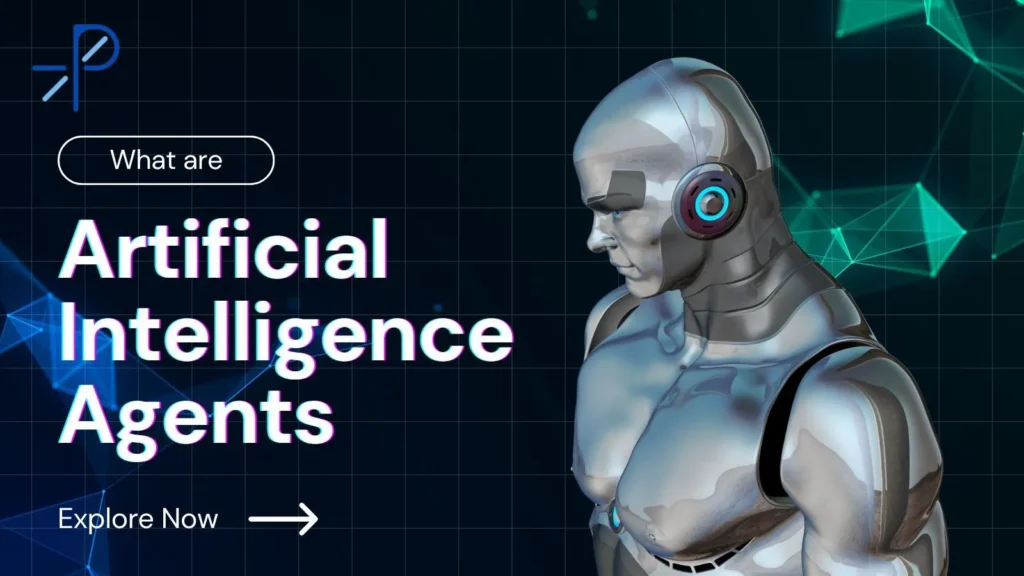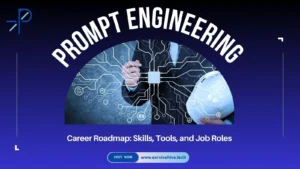AI Agents: Definition Types Examples Benefits & Future

Artificial Intelligence agents (AI Agents) are transforming the way we live and work. From booking a cab to adjusting a thermostat, AI agents act as intelligent digital assistants that make decisions, automate tasks, and improve efficiency. As machine learning agents become smarter, they are shaping the future of AI in work, business, and daily life.
What Are AI Agents?
AI agents are software programs that can sense their environment, process data, and act autonomously to achieve goals. Unlike traditional software, AI agents use machine learning, natural language processing, and intelligent automation to adapt, learn, and make decisions without constant human intervention.
How Do AI Agents Work?
AI agents work by combining perception, reasoning, and action.
- Perception → Collect data through sensors or APIs.
- Reasoning → Analyze information using AI/ML models.
- Action → Perform tasks like answering queries, making recommendations, or executing commands.
Example:
- A chatbot agent in customer service can understand queries, pull product data, and provide instant support.
- A self-driving car agent can sense traffic, process road data, and make real-time driving decisions.
Types of AI Agents and Their Applications
- Simple Reflex Agents – Act on current conditions (e.g., spam filters).
- Model-Based Agents – Use internal models to predict outcomes (e.g., navigation apps).
- Goal-Based Agents – Plan actions to achieve specific goals (e.g., robotic delivery drones).
- Learning Agents – Improve performance over time (e.g., personalized recommendation engines).
Key Benefits of AI Agents in Business & Daily Life
- Efficiency & Automation – Save time by automating repetitive tasks.
- Data-Driven Insights – Support decision-making in finance, healthcare, and retail.
- Scalability – AI agents can handle thousands of users simultaneously.
- Personalization – Provide tailored experiences (e.g., Netflix, Spotify recommendations).
The Future of AI Agents: Trends & Possibilities
By 2030, AI agents are expected to become more human-like, managing intelligent automation across industries. From healthcare digital assistants to AI-driven project managers, the potential is limitless.
According to a Gartner report, 70% of white-collar workers will interact with AI-powered digital assistants daily by 2027. This shows how machine learning agents are set to become an integral part of professional and personal life.
Preparing for the AI Future with Praxis Forge
To thrive in this AI-driven future, professionals must build real-world skills in AI agents, machine learning, and intelligent automation. That’s why learning platforms like Praxis Forge provide practical, hands-on programs to prepare you for tomorrow’s challenges.
👉 Explore courses at Praxis Forge
FAQs About AI Agents
Q1: What is the difference between AI Agents and traditional software?
AI agents can adapt, learn, and make decisions, while traditional software follows fixed instructions.
Q2: Where are AI Agents used in real-world industries?
They are used in healthcare (virtual nurses), finance (fraud detection agents), retail (recommendation engines), and transport (self-driving cars).
Q3: Are AI Agents safe and ethical to use?
AI agents are safe when designed with ethical frameworks, transparency, and strong regulations. Companies must ensure accountability to avoid bias and misuse.
Q4: What is the future of AI Agents in work?
AI agents will power intelligent automation, helping businesses cut costs, boost productivity, and enhance customer experiences across industries.

Why Learners Choose Praxis Forge to Master Prompt Engineering
Why Learners Choose Praxis Forge to Master Prompt Engineering Introduction Prompt Engineering has become one of the most in-demand AI

Prompt Engineering Career Roadmap: Skills Tools and Job Roles
Prompt Engineering Career Roadmap: Skills Tools and Job Roles Table of Contents Introduction What Is Prompt Engineering? Why Prompt Engineering

What Is Prompt Engineering? A Beginner’s Guide to the Future of AI Jobs
What Is Prompt Engineering? A Beginner’s Guide to the Future of AI Jobs Artificial Intelligence (AI) is transforming the way

Python vs JavaScript: Which Language Should You Learn First?
Python vs JavaScript: Which Language Should You Learn First? Introduction Choosing your first programming language can shape your entire tech

How Praxis Forge Teaches Prompt Engineering Differently from Other Platforms
How Praxis Forge Teaches Prompt Engineering Differently from Other Platforms Table of Contents What Is Prompt Engineering and Why It

Praxis Forge vs Generic Online Courses: Which One Really Gets You Hired?
Praxis Forge vs Generic Online Courses: Which One Really Gets You Hired? Table of Contents The Problem with Generic Online
